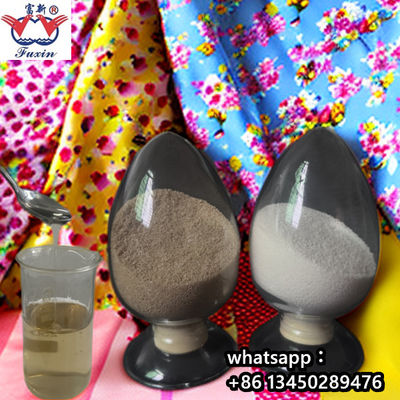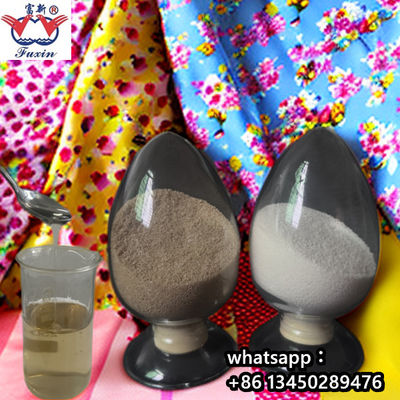Product Description:
Textile Printing Paste is a specially formulated mixture used in the textile industry to create printed designs on fabric. It consists of pigments, dyes, thickeners, binders, and other additives that work together to achieve desired color, texture, and durability.
The primary purpose of Textile Printing Paste is to transfer colors onto fabric surfaces accurately and evenly. It provides the necessary viscoelastic properties to ensure that the paste adheres firmly to the fabric during printing and maintains its shape and definition.
Thickeners, such as pigment printing thickeners or reactive printing thickeners, are added to the paste to control its viscosity and enhance its printing properties. Thickeners help to prevent color bleeding and ensure sharp and well-defined patterns and designs. Binders provide elasticity, adhesion, and durability to the transfer prints.
Features:
Sodium carboxymethyl cellulose aqueous solution is clear, transparent, homogeneous, and has favourable stability. It won't be affected by mechanical force, so its viscosity remains the same regardless of shipment cycle or stirring. In addition, it is stored in a tank and it is not affected by changes in temperature or bacteria, so it can be used at any time during production.
This solution has plenty of thickness and film-forming properties. It can form a smooth, wear-resistant, and flexible film on the yarn surface which can take the absolute strength, relative activity, and friction of the weaving machine, thus helping to efficiently weave high-grade fabric and produce at high speed.
The yarn produced with this solution is easy to dry and glossy with a soft hand feel. Furthermore, desizing is simple without having to go through any chemical treatments or having to use desizing agents.
Yarn count and fabrics produced with the solution are not susceptible to yellowing or mildew, so it reduces defective spots and greasy dirt, and avoids damages from worms or rats.
Using cellulose gum for size significantly reduces the requirements, improves the sanitary conditions of the workshop, makes maintenance more simple, and improves weaving machine production capacity, compared to using starch.
Performance of Ultra High DS CMC


Left pic:Dyed color granular CMC 2% solution Right pic: The left is standard product made in Italy. The middle and right are Fuxin different types of CMC.
Specification
| TYPE |
Degree of Substitution (DS) |
Viscosity
(Brookfield,1%soln.,20℃)
|
pH |
Moisture |
Particle Size |
| 10H |
1 |
2500-3000cps |
6.5-8.5 |
≤15% |
20-70 mesh |
| 13H |
1.3 |
1500-2500cps |
| 15H |
1.5 |
1000-2000cps |
| 18H |
1.8 |
800-1600cps |
| Y002 |
2 |
800-1500cps |
| Y230 |
2.3 |
600-1000cps |
*Kindly contact us for specification and information about any specific grade of CMC other than mentioned in the above table.
Powder or granular available, we recomed customer to purchase the brown granle type CMC to sell as sodium alginate for higher profit.
Technique Process
▲Dissolve the dyes and add into the paste, make the color paste with thickener→▲Printing→▲Drying (100 ℃)→▲Baking or steaming→▲Washing→▲Soaping→▲Rinsing→▲Post treatment procedure.
Dissolution Methods and Proportion:
How to make the paste?
1. The ratio depends on DS level, low DS product should mix with pure sodium alginate to reach a better performance, while ultra high DS product can 100% replace SA.
2. Proportion: same as sodium alginate original paste preparing. Firstly add 65% water, stir the water while adding the product evenly and slowly, then speed up the stirrer for 20-25 minutes. And then add the remaining 35% water, stir for another 20-30 minutes. Leave for 15 minutes.
How to make sure the paste dissove completely?
1. Powder and water completely fuse, not exist solid-liquid separation phenomenon.
2. Paste is dissolved evenly, the surface is smooth, no granular objects.
Technical Parameters:
| Property |
Value |
| Classification |
Chemical Auxiliary Agent |
| pH Value |
6.5-8.5 |
| D.S. |
Above 0.9 |
| Mf |
[C6h7o2(Oh)2CH2coona]N |
| Texture |
Smooth |
| Color |
White |
| Sieving Limits (80 Mesh) |
Above 98% |
| Model NO. |
Textile Grade |
| Product Name |
Textile Printing Paste |
| Viscosity |
1.8% ≥15000cps |
| Keywords |
Synthetic Thickener For Textile Printing, textile thickener, Synthetic Thickener For Textile Printing |
Applications:
Apparel Manufacturing: Textile Printing Paste is widely used in apparel manufacturing for creating attractive patterns and designs on various types of fabrics, including cotton, silk, polyester, and blends. This paste is applied through techniques such as screen printing, roller printing, or digital printing, making the garments more appealing and attractive to buyers.
Home Textiles: Textile Printing Paste has found its place in the production of home textile products, be it bed linens, curtains, upholstery fabrics, or tablecloths. Its use makes the textiles look more attractive with decorative and intricate patterns, thus adding a unique and personalized touch to home decor.
Promotional Products: Textile Printing Paste is used to create promotional items such as bags, caps, and t-shirts with logos, slogans, and graphics printed on them. The paste ensures a precise and long-lasting print, increasing the overall visual effect and thus the product’s brand recognition.
Support and Services:
We provide technical support and service for Textile Printing Paste. Our team of experts is available 24 hours a day, 7 days a week to answer any questions or concerns you may have regarding our products. We also offer a range of additional services, such as product customization and consultation on the best printing techniques for your material.
Packing and Shipping:
Packaging and Shipping of Textile Printing Paste:
The Textile Printing Paste is packaged in sealed plastic drums for safe and secure transport. For international shipping, the drums are further encased in a wooden crate or box to protect against damage from extreme temperatures, bumps, and other environmental conditions. All crates and boxes are labeled with the product name, weight, quantity, and destination.

 Your message must be between 20-3,000 characters!
Your message must be between 20-3,000 characters! Please check your E-mail!
Please check your E-mail!  Your message must be between 20-3,000 characters!
Your message must be between 20-3,000 characters! Please check your E-mail!
Please check your E-mail! 



